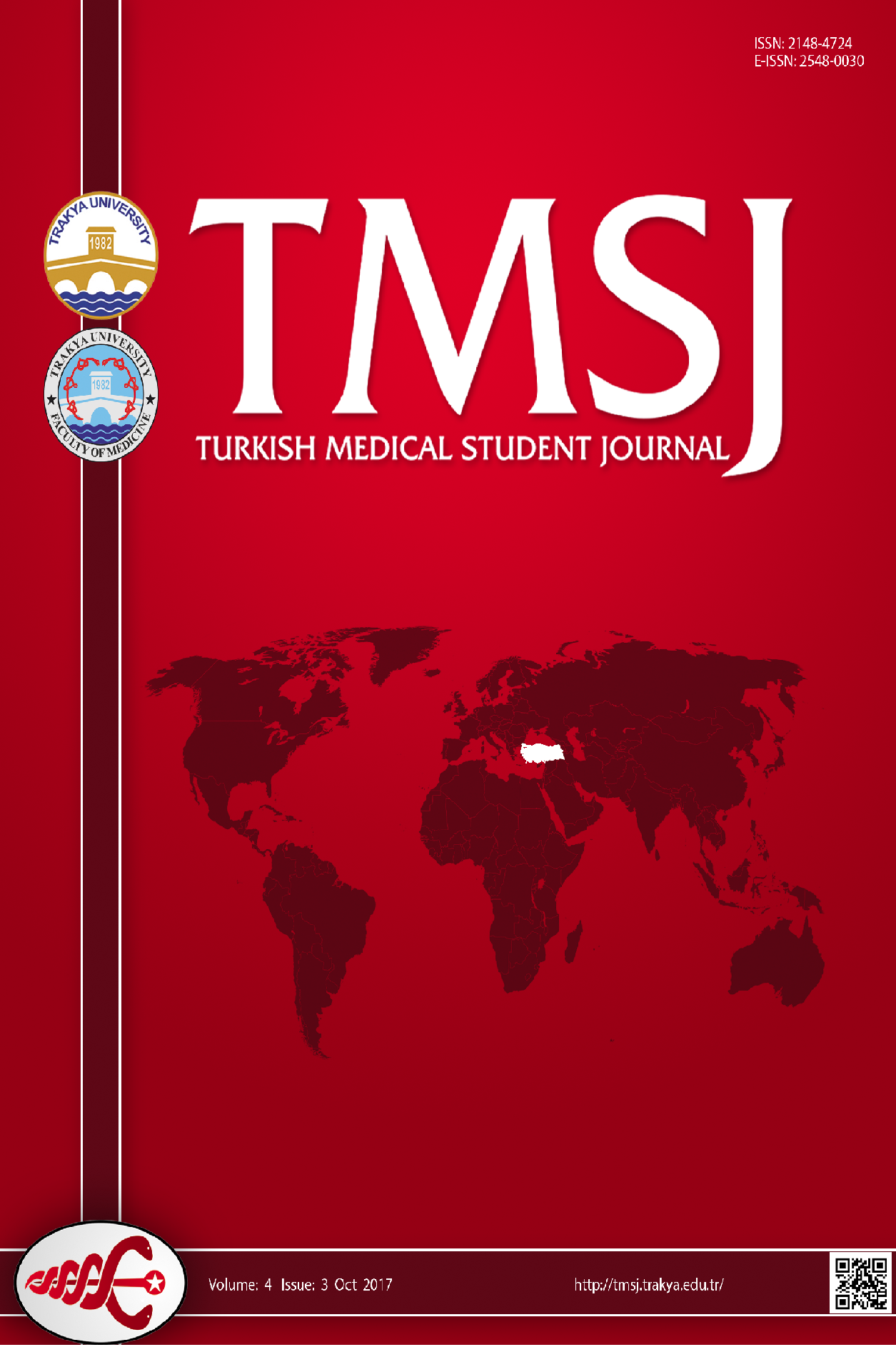
Turkish Medical Student Journal
Yazarlar: Ali Rıza AVUL, Büşra ÖZDEMİR, Gülay Durmuş ALTUN
Konular:-
Anahtar Kelimeler:Prostate cancer,Theranostic,Lutetium
Özet: Aims: Prostate cancer is one of the most prevalent cancers worldwide and sometimes it can be deadly which brings out a high quantity of the prostate specific membrane antigen. Gallium-68 prostate specific membrane antigen PET scan is used to detect primary tumors and metastases of prostate cancer. In addition, Lutetium-177 prostate-specific membrane antigen is used for treatment in some special cases. Our case report aims to show the roles of prostate specific membrane antigen labeled theranostic agents in the diagnosis, staging, and treatment of prostate cancer and evaluate the response to the treatment of metastatic castration-resistant prostate cancer. Case Report: A 78-year-old male patient was admitted to Trakya University Hospital Nuclear Medicine Department with the diagnosis of prostate cancer for cancer staging and treatment. Gallium-68 prostate specific membrane antigen was firstly used to detect any metastases and then to evaluate response to the treatment. Lutetium-177 prostate specific membrane antigen was used for treatment. Conclusion: After 3 cures of Lutetium-177 therapy, the patient underwent Gallium - 68 prostate specific membrane antigen PET which demonstrated regression of the metastatic tumor. There was a decrease in the uptake of Gallium-68 prostate specific membrane antigen in the primary tumor and lymph nodes metastases. Also, bone metastases have been cleared. Hence, Lutetium-177 seems to be a promising treatment modality to treat metastatic prostate cancer.